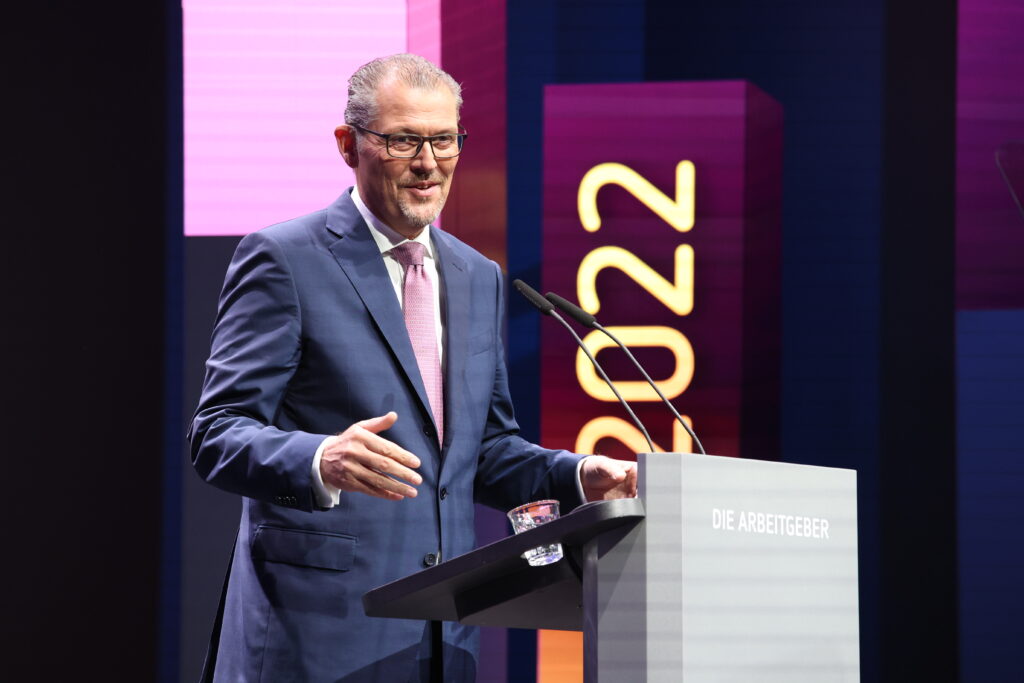Our vision
The positions and activities of employers' associations and companies are characterized by the pursuit of economic and social sustainability.
Our goal is to do business in such a way that future generations can also find sufficient employment and create prosperity. It is also important to preserve the basis of life for future generations, above all by consolidating public finances, through sustainable and affordable social security systems and through sensible measures to protect the environment and nature.

Consolidating
Social Market Economy
Our tasks
We see it as our most important task to constantly promote the entrepreneurial point of view in social and economic policy. It is important to make the interests of companies clear in the course of political and economic decisions and to find approval for our positions in politics and among the public. In doing so, we are committed to the social market economy, which we want to further consolidate. At the same time, we maintain social partnership relations in order to promote working conditions in our country.

An authentic voice
of German economy
Our Strategy
Together with our members we develop the political guidelines and positions of the employers. In the committees, the necessary technical work is carried out in a dialogue and team-oriented manner. The involvement of all members from all sectors gives our positions and arguments a strong weight. Through our anchoring in the companies and businesses, we are the authentic voice of German entrepreneurs.








